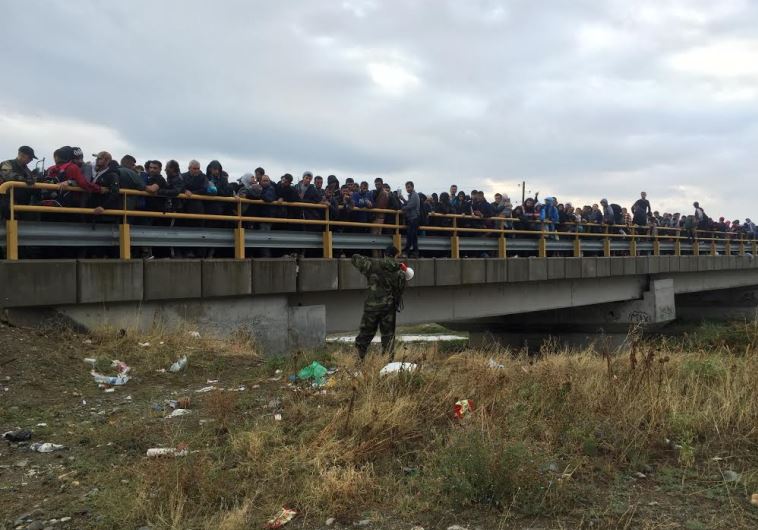Anywhere but here: Migrants, buoyed by success of others, cross Macedonia towards Northern Europe
In recent days, it has been the scene of massive numbers of migrants crossing the border to reach destinations in northern Europe.
 Migrants cross to Macedonia(photo credit: SETH J. FRANTZMAN)Updated:
Migrants cross to Macedonia(photo credit: SETH J. FRANTZMAN)Updated: